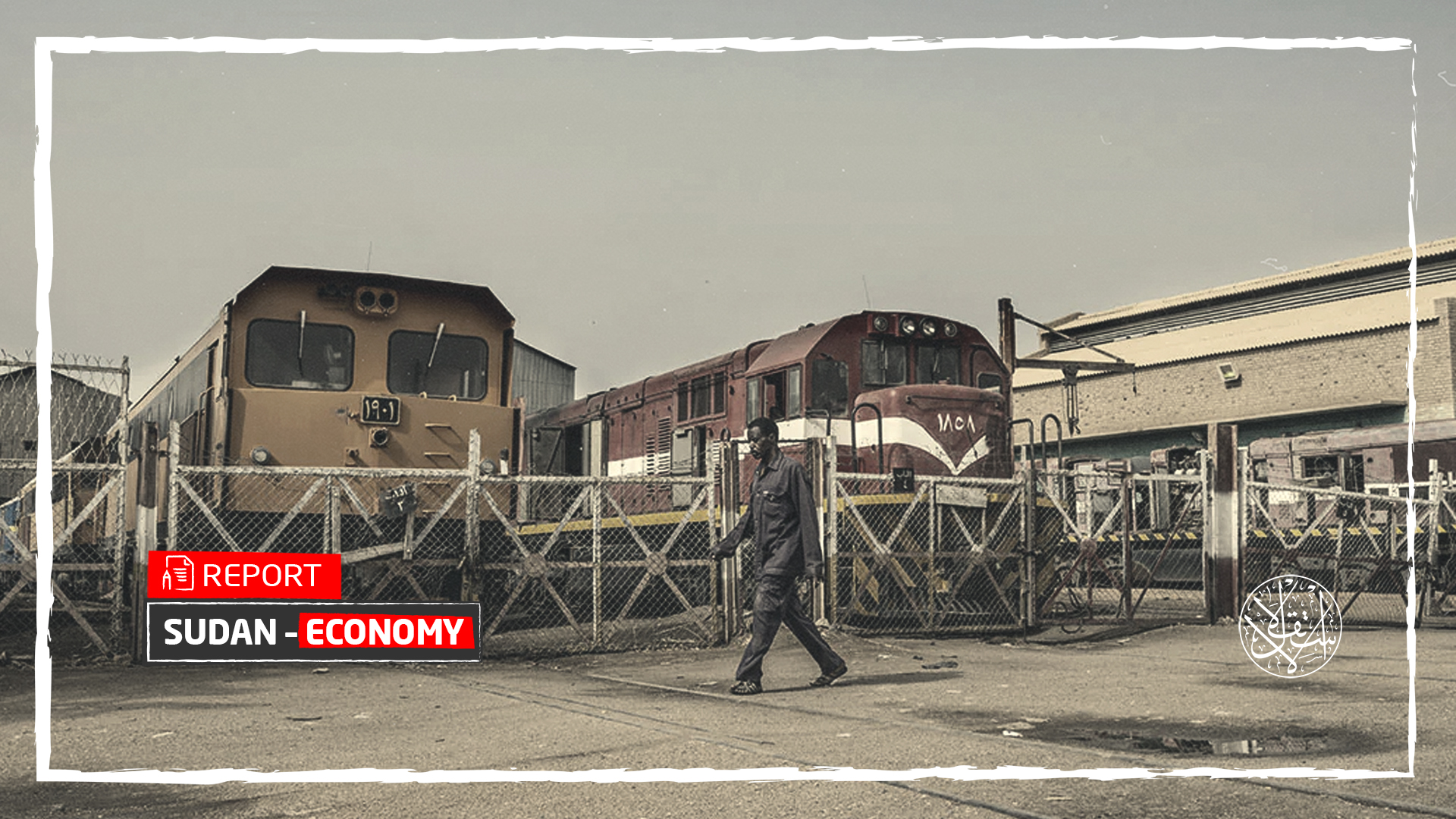Sudan Aims for Reviving the Railway Network; Will It Help It Back to the Right Track?

The British Telegraph newspaper confirmed that Sudan plans to revive a huge railway network that is expected to serve as a lifeline for the entire region.
Sudan Railways Corporation (SRC) Director General Walid Mahmoud Ahmed is working on a way to revive Africa's third largest railway network and restore one of his country's proudest institutions to its former glory.
The Sudanese official stressed that "the policies of the former regime destroyed a large part of our railway network."
Renovation Plan
In July 2021, Sudan announced a half-billion-pound plan to renovate the dilapidated railway network that was first built more than a century ago by the British colonial invasion.
This step is part of the new government’s plan to fundamentally rebuild the state after the end of the dictatorship of former regime President Omar Al-Bashir in the 2019 revolution.
The World Food Programme (WFP) told The Telegraph that an efficient rail network in this part of the world could give “a lifeline” to millions.
It can also help humanitarian workers feed the hungry in Darfur, South Sudan and Tigray region.
In a related context, Mustafa Ahmed Fadl, director of a small museum in the city of Atbara, confirmed that the modern history of Sudan can be told through the railway network.
His museum recounts how some of the first lines from Cairo were laid by the Anglo-Egyptian army, led by General Herbert Kitchener, in the late 1890s.
Kitchener used trains to supply his troops as they marched across the desert.

When they reached the outskirts of the capital, Khartoum, his forces killed 12,000 Mahdist soldiers, ill-equipped with machine guns, as the British Empire claimed the right to control Sudan.
Nearly 60 years later tens of thousands of rail unionists demanded freedom, making Britain’s position untenable.
“Change in Sudan has always started from here in Atbara,” Fadl stressed.
After independence from Britain in 1956, about 2,500 miles of tracks crossed the desert, for trains running from the gold mines in the west to the cotton and wheat fields in the east towards the Red Sea, connecting all parts of Sudan.
But then in 1989, the dictator Omar Al-Bashir granted to his generals a lucrative monopoly on transport trucks and broke the Union’s back, leaving the railways in a state of rust amid widespread corruption and mismanagement.
Following Bashir’s ouster, Sudan’s transitional government hopes to bolster its collapsing economy and connect old lines with Ethiopia, Chad and South Sudan.
It was reported that China, the African Development Bank (ADF) and unknown Gulf companies have already expressed interest in the mega project.
Ultimately, the government wants to change the entire route to include Egypt and Kenya.
The British Empire-era trains at Atbara now look more like cemeteries than workshops.
Attempts to Arise
Dozens of flip-flop-clad engineers and mechanics rush between huge piles of scrap metal and crippled carriages, constantly wiping sweat from their eyebrows in the 46-degree celsius heat, after sand dunes over the past decades have blanketed locomotives from Germany, the United States, India, and China. Most of it is irreparably broken.
There are about 130 locomotives in the country, but more than two decades of U.S. sanctions mean parts are hard to come by.
Engineers on the site say they have to buy second-hand supplies from places like Romania and South Korea, and often end up being the victims of failed deals.
About half of the network appears to be in ruins. In many places where the line is supposed to operate, drivers cannot exceed 10 miles per hour for fear of derailing.
Thus, it may take more than a week to cross the country.
For its part, the railways struggle to get enough fuel to move a 300-meter train or pay its workers, often prompting employees to sell scrap metal to buy food.
One worker grumbled, “When I was a kid, the trains used to come and leave on time, but now, the trains leave when the officials want.”
The World Food Program (WFP) must send thousands of food shipments along dangerous highways in Sudan, lined with burning and overturned trucks.
Therefore, the organization has led the task of rehabilitating several sections of the railways over the past few years.
The program plans to spend tens of millions of pounds to help the Sudanese government refurbish about a hundred locomotives, repair signaling systems and train new staff.
“The modernized rail transport system will become a lifeline for the food supply chain across Sudan and beyond,” says Eddie Rowe, head of the World Food Program in Khartoum.
“The rehabilitation of major railways will make transporting life-saving food and food aid faster, cheaper, safer and more environmentally friendly,” he added.
This will enable the WFP to save lives. “It is a logical investment for the people of Sudan, the government and the entire region,” he said.
“The station used to see about 30 trains pass every day, but now we sometimes get a few goods trains and one passenger train to Khartoum,” said Atbara station manager Abdel Rahman Idris Ahmed.
Other times, he continues, “we don’t get anything at all.”
“In India, they focused on their infrastructure, on their railways, but here we had self-interest politics. The elite wanted to have a fleet of trucks, so we suffered.
“I hope Britain can invest here, it was the first country to create this great institution,” he added.
“Over the years, the railways have played a big role in opening up the country and opening people’s minds. The situation is not good, but we are striving to improve it,” Ahmed concluded.












